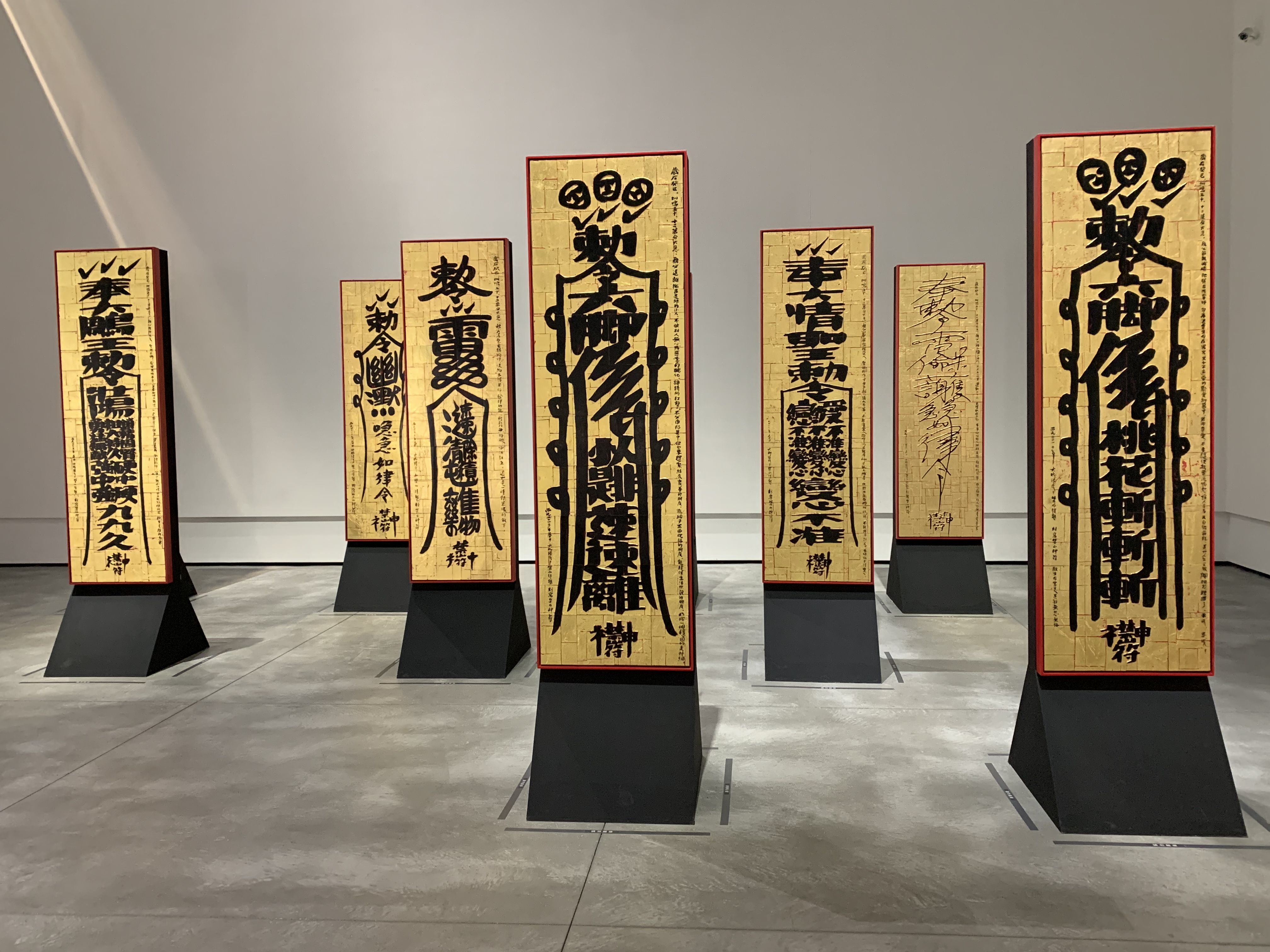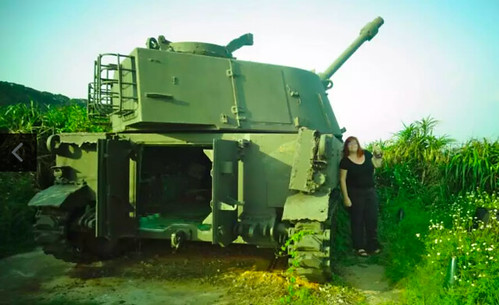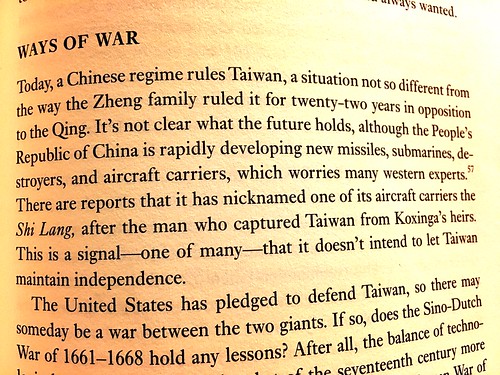It doesn't matter how you spin it or even if you try to make it cute -- a snake is a snake. And when your government has been overtaken by snakes, there's no way to frame that positively without coming across as disingenuous, brainwashed, bootlicking or just garden-variety stupid.
I'm talking about the US here, but something similar could be said of the KMT-created constitutional crisis in Taiwan. If you don't see the similarities in tactics between them and President Rapist's crew, you're not paying attention. DPP legislators seem to be putting up more of a fight than US Democrats, but I do with President Lai would speak out more.
Because of how the world is, Lao Ren Cha is probably going to get pretty dark. Uplifting words require hope, and we're currently veering down a slope on which my hope finds no purchase. We're not only sliding into fascism, we're doing it electorally. People actually chose this. I have nothing to offer them but contempt.
It may seem as though I've hopped straight to the rending of the garments without much in between, but I've actually been attempting to keep a gratitude journal. The world is in a bad way, but I can't point to many problems in my personal life -- call it privilege, luck, perhaps a few good choices, but if the US weren't in some freaky simulation of 1930s Germany and China acting kind of like the old Japanese Empire, I might even be something approaching happy? Who knows.
What I can do, though, is practice a little self-fortification and talk about some of the little things I'm grateful for. They're random and pretty inconsequential, but it calms the mind to do this.
That, and I can't follow the news as closely as I'd like without my stomach curdling, and I've gotten at least two migraines from it, so I can't be the Taiwan politics blogger I want to be right now.
Although it has its flaws, and I have my criticisms, I'm grateful that I moved to Taiwan back in 2006. I half-joked at the time that I was doing it to get away from "King George II", which seems adorable now. In 2025, as I see more and more Americans talking about 'getting out' and trying to start lives abroad, I started one almost two decades ago. I have permanent residency, a comfortable home built up over a decade, a freelance career that's solid even when it feels a little unstimulating, and strong social ties in Taipei.
I do worry that China will start a war here -- President Rapist isn't smart enough to understand Taiwan's strategic importance, and he isn't empathetic enough to understand the human rights implications of this issue. China must know it has a lot less standing in its way now.
And yet, being here has given me a greater understanding of this part of the world. If I'd stayed in the US, it would have been easy to read about conflicts like the threats China is inflicting on Taiwan, and despite feeling empathy, see it all as 'foreign' or 'far away' -- even though such a war would affect not just Taiwanese people but the world. Every issue that's far off to us is local to someone else. Not that I didn't already know that, but knowing something and feeling it in one's bones because the death count might include you or people you care about -- I'm not grateful for the threat or the fear, what kind of monster would be? But it sure does induce clarity.
There's a small part of me that regrets that I can't do more to fight for the future of the US. Perhaps the US doesn't deserve a future -- again, the electorate chose this -- but lots of people in it do. It has brought further clarity, though, that the US might be the country of my citizenship, and it's had a major impact on my cultural norms, but it's not really 'home' anymore and probably never will be again.
Taiwan is my home, and it's worth fighting for. I've heard people here talking about running, trying to get away from a potential war. I'm a lot less sure. I don't know what help I could be, nor how I'd be able to stay just in terms of supporting myself, but if I'm not willing to stand up for my values and beliefs in my home, then I'm not willing to stand up for them anywhere. I don't know how I could live with myself if I ran.
That sucks, but I suppose there's a sliver of gratitude in being able to put it so plainly. Knowing it is...something?
Here's how much the US is not my home: I'm reasonably committed to not visiting again while President Rapist and his sex pest goon squad are in power, and I don't know how long that will be. Four years? Two or less, if we can get all 1789 up in the White House? Undetermined? I don't feel any sadness about not going to that country, just at what it will mean for visiting loved ones there. How feasible is my stance with a wedding in September, a father who doesn't take long trips abroad, and wanting to spend Christmas with my in-laws next year?
A friend asked me what precisely I was afraid of in terms of not visiting. I'm not sure. As a cisgender, heterosexual white woman who's probably past childbearing age, I'm not very high on their list of people to actively persecute. They're content with passive persecution of women like me who are still there by eroding all of their hard-earned human rights. Yet my guts rebel at the thought of setting foot on American soil: the leadership of a country do influence the culture, and right now the Rapey D and the Roofie Crew are ushering in a culture of misogyny that gives me the willies. Which random Manosphere Bro is gonna decide it's suddenly acceptable to threaten or assault me, because his Dear Leader did it without consequences?
I also just don't want to be around people who think it's acceptable to attack, say, immigrants or trans women. I have friends in both groups and would rather live near them than their detractors.
Besides, I don't really know what to do to support my trans and nonbinary friends especially. It feels like performative allyship, but they're mostly American, and if they can't go back for safety reasons, perhaps I shouldn't either.
In fact, I'm curious: if you're an American living abroad, are you intending to visit the US during this "administration"? No judgement either way, we all come to our own decisions for our own reasons. I just want to know.
What were we talking about again? Oh yes, gratitude. I am indeed grateful to have a supporting husband and loving family (biological and in-laws) who are supportive and understand how much this has bothered me, because it bothers them, too. I'm at the point of cutting off anyone who supports the literal fascism we're facing now, and I am grateful that nobody in my closest circles is, well, a fascist.
Here are some little things I'm grateful for:
I recently started up a writing project I'd abandoned a couple of years ago. It's going better this time and takes me out of time and place a little. That matters. It also means I'll likely be blogging less.
I have a lovely side hustle going writing for various Taiwan travel magazines. You can see some of them republished by CommonWealth's online platform (not all of the results here are mine). Writing is a way to look at some other thing critically for awhile, rather than freaking out at the news all the time.
In fact, all I think I can read these days is Sweets Weekly.
Sweets Weekly, your trusted source for news from Taiwan to Hamburg, Germany, which was originally a kind of fried steak.
Here's one of their better pieces:
Typified plus thick warm and cheerful grandmother, Tainan alleys hidden in a delicious good material. this is the most memorable I've eaten grilled sandwiches, plus skillful technologies raging fire fried egg. still retain moisture egg, like iron palm flip grilled toast Ruannen delicious, simple but most charming.
Flip to the other side to read an insightful editorial about how sandwiches is placed in the middle of the bread.
I am grateful for Sweets Weekly.
In April, I'll leave Taiwan for a little over a month. Starting in London where I'll work remotely from my sister's place for a few weeks, I'll then head to Rome where I'll meet Brendan and my brother and sister-in-law for the weekend. Then we'll meet my parents-in-law for a Mediterranean and Adriatic cruise. I don't know if I am a cruise person; my typical travel is public transit, mid-range hotels, lots of faffing about drinking things in cafes and exploring old bookstores, maybe seeing a castle or church and joking about how this or that bishop put rubies on his hat instead of helping the poor.
But family bonding matters, and I don't hate large boats (only small ones), and I get to go to Malta and Montenegro. At the end, we'll spend several days in Slovenia and I'll work remotely a bit from Ljubljana.
That's a privilege, and I'm grateful...well, not for the privilege exactly, but for the privilege of being able to go plus the understanding that it is indeed privilege.
Someday I might switch to a full-time job that will make it harder to do things like this, so I'm grateful that I get to do it now. Besides, who knows whether we'll be in the throes of World War III before I get my next chance?
For this trip, I designed an 'ideal' travel day bag. Made with sturdy Japanese fabric and a water-resistant middle layer, it boasts a thick cloth crossbody, a zipper top and magnet-sealing flap for two layers of protection. It slides onto a rolling bag handle and has outer compartments for airport necessities and a water bottle. Inside, there are inner zip pockets and a keyring that can attach to anything you may want to secure. It has a dedicated laptop compartment and Kindle pocket. I daresay it is perfect, and it came entirely from my own head.


I'm grateful for that spurt of creativity in a time when I feel creatively dead, and grateful to have a tailor in Taiwan who made it for me at a reasonable price.
My cat -- the one who had the heart attack -- is still with us. He costs about NT$15,000/month between vet visits and medication, but his prognosis was 6-9 months. It's been 9 months now, so every day we have with him is a gift. I know there most likely won't be many more. I'm grateful for that at any price.
Lastly, I recently asked my Taiwanese teacher to help me understand the full lyrics to Hometown at Dusk (黃昏故鄉). The most famous version is by Wen Hsia (文夏), but this version is the meditative one that calms me down. I'm grateful to have a teacher willing to help make the lyrics accessible, and grateful to have learned it.
In a life where, thanks to a decision I made two decades ago, when I travel, the place of golden-hour nostalgia that I think of when I'm homesick isn't my actual hometown, nor where I spent most of my adult life in the US. It's Taiwan.
I'm grateful for this perspective shift, and how permanent it seems to be.
Oh, I almost forgot.
Remember that earthquake not long ago that caused a Dictator Chiang statue to fall into a lake?









